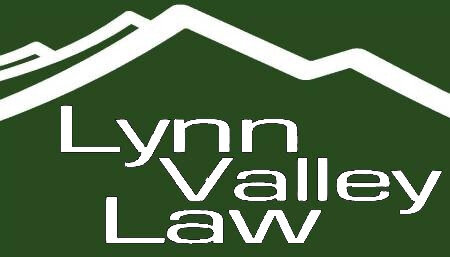Best Conveyancing Lawyers in North Vancouver
Share your needs with us, get contacted by law firms.
Free. Takes 2 min.
Free Guide to Hiring a Real Estate Lawyer
List of the best lawyers in North Vancouver, Canada
About Conveyancing Law in North Vancouver, Canada
Conveyancing is the legal process of transferring property ownership from one person to another. In North Vancouver, Canada, conveyancing typically involves buying or selling real estate such as houses, condominiums, or commercial properties. The process ensures the proper transfer of title, settlement of financial obligations like mortgages and property taxes, and protection against legal risks. North Vancouver follows the provincial regulations set by British Columbia, which are designed to protect both buyers and sellers and ensure a clear, legally recognized transfer of property.
Why You May Need a Lawyer
People often seek a lawyer's help in conveyancing for several reasons. Lawyers provide vital legal oversight, helping to prevent common pitfalls and facilitate smooth transactions. Common situations where legal assistance is essential include:
- Reviewing and explaining the terms of a purchase or sale agreement
- Identifying any legal or financial encumbrances on the property, such as liens or easements
- Ensuring compliance with local zoning regulations and bylaws
- Handling complex transactions, such as those involving trusts or probate sales
- Coordinating the transfer of funds and settlement costs between parties
- Registering the title and preparing all required documents for the Land Title Office
- Resolving disputes or issues discovered during inspections or due diligence
A lawyer's expertise can be invaluable for protecting your investment and avoiding future legal complications.
Local Laws Overview
Conveyancing law in North Vancouver aligns with the British Columbia provincial framework, primarily governed by the Land Title Act and supporting regulations. Some key aspects include:
- Transactions must be registered with the British Columbia Land Title and Survey Authority. This formalizes the legal ownership change.
- The Property Transfer Tax (PTT) applies to most purchases, with some exemptions for first-time buyers and newly built homes.
- Local zoning and municipal bylaws in North Vancouver may affect what you can do with your property. Buyers should verify permitted uses and restrictions before concluding a sale.
- Disclosure obligations require sellers to provide accurate information about the property's condition. Failure to disclose known defects can result in legal action.
- Real estate contracts are binding agreements with strict timelines for conditions and completion. Missing deadlines can have significant legal and financial consequences.
Lawyers ensure all legal requirements are met, draft and review documents, and communicate with other parties to keep the process on track.
Frequently Asked Questions
What is conveyancing?
Conveyancing is the legal process of transferring property ownership from one individual or entity to another, including all necessary administrative and financial steps.
Do I need a lawyer for conveyancing in North Vancouver?
While it is possible to handle some aspects yourself, it is highly recommended to use a lawyer or notary for conveyancing in North Vancouver. This reduces risks and ensures legal compliance.
What are the main steps involved in conveyancing?
Key steps include reviewing the purchase or sale agreement, carrying out title searches, preparing documents, managing funds, registering the transfer, and closing the transaction.
How long does the conveyancing process take?
It typically takes two to eight weeks, depending on the transaction's complexity, the parties involved, and contingencies such as mortgage approval or inspections.
What are the common costs involved?
Costs may include legal or notary fees, Property Transfer Tax, land title registration fees, and relevant disbursements like municipal tax certifications.
What risks do buyers and sellers face without legal help?
Risks include unclear title transfer, undiscovered liens, problems with property boundaries, unenforceable contracts, or missing important deadlines, all potentially resulting in financial or legal liabilities.
Are there any tax exemptions for first-time home buyers?
Yes, British Columbia offers Property Transfer Tax exemptions for qualifying first-time home buyers who meet certain criteria regarding property value and residency.
What is a title search, and why is it important?
A title search examines the property’s history to uncover legal issues such as liens, mortgages, or easements. It ensures the seller has the right to transfer the property and that the buyer receives clear title.
How are funds transferred during a real estate transaction?
Funds are usually held in trust by the lawyer or notary until all conditions are met. Only then are they released to the seller, ensuring security for both parties.
Can problems arise after the transaction is complete?
Yes, post-completion issues can include discovering undisclosed defects or previously unknown legal restrictions. Engaging a lawyer helps minimize these risks through careful due diligence.
Additional Resources
If you need further information or assistance, the following organizations and authorities can be valuable:
- British Columbia Land Title and Survey Authority (LTSA) for land registration and records
- Law Society of British Columbia for finding qualified lawyers and understanding legal standards
- City of North Vancouver and District of North Vancouver for local zoning and property information
- BC Ministry of Finance for details on Property Transfer Tax and exemptions
- BC Real Estate Association for educational materials and advice on real estate transactions
Next Steps
If you are considering buying or selling property in North Vancouver, the best course of action is to consult a lawyer experienced in conveyancing. Start by gathering your documents, including the purchase or sale agreement and property details. Contact a local law office to book a consultation. During your meeting, ask questions about the conveyancing process, fees, timelines, and what documents you will need to provide. A skilled legal professional will guide you through each step, protect your interests, and ensure your transaction proceeds smoothly and securely.
Lawzana helps you find the best lawyers and law firms in North Vancouver through a curated and pre-screened list of qualified legal professionals. Our platform offers rankings and detailed profiles of attorneys and law firms, allowing you to compare based on practice areas, including Conveyancing, experience, and client feedback.
Each profile includes a description of the firm's areas of practice, client reviews, team members and partners, year of establishment, spoken languages, office locations, contact information, social media presence, and any published articles or resources. Most firms on our platform speak English and are experienced in both local and international legal matters.
Get a quote from top-rated law firms in North Vancouver, Canada — quickly, securely, and without unnecessary hassle.
Disclaimer:
The information provided on this page is for general informational purposes only and does not constitute legal advice. While we strive to ensure the accuracy and relevance of the content, legal information may change over time, and interpretations of the law can vary. You should always consult with a qualified legal professional for advice specific to your situation.
We disclaim all liability for actions taken or not taken based on the content of this page. If you believe any information is incorrect or outdated, please contact us, and we will review and update it where appropriate.









